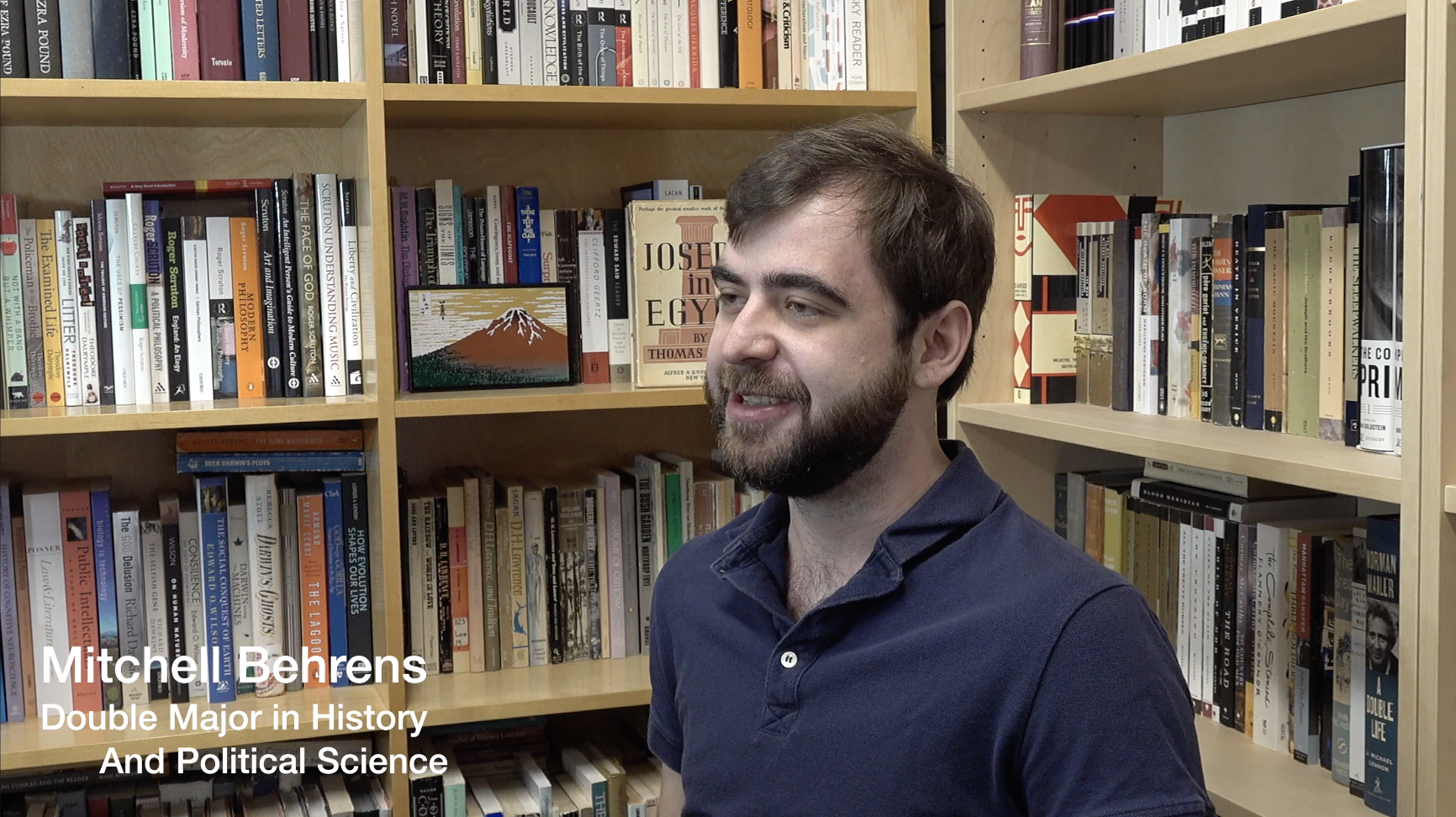
Our History Program
The study of history builds a foundation for active, informed citizenship. By exploring the past, students can make decisions in the present-day world, based on an understanding of the institutions, ideas, and relationships that have developed over the past decades and centuries.
Are you a college student? Visit the ONTransfer website to view more of our pathway agreements.
As students learn about the lived experience of the past, they discover that it is full of fascinating stories and compelling personalities. They learn that sometimes, truth really is stranger than fiction. And as many of our senior-level students have testified, the research process can be exhilarating. They discover the excitement of sifting through the archives, making original discoveries, and then sharing their findings with others. History can be a source of immense delight – both the stuff of history and the process of discovering it.
Our faculty bring their wide-ranging interests and specializations into the classroom and provide a great selection of courses that meet our student’s interests. From the ancient history of the Americas and Europe, through to the history of Canada in the late twentieth century, and all areas and time in between, the program tries to match its offerings to popular areas of interest and the latest developments in historical study.
Some courses include the history of the Anishinaabe people, ancient Greece and Rome, medieval Europe, women’s and gender history in Canada, the witch-hunts in Europe, as well as survey courses on American, Canadian, and Western civilization history.
Our history students equip themselves for potential future careers in a variety of fields, including, but not limited to, the following: law, education, civil service (including the foreign service), journalism, museum studies, public history, publishing, information technology, and research consulting.
What You Can Expect
Hands-on learning, a close-knit campus community, and caring faculty.
1 / 8
Learn the perspective of each era
You’ll be exposed to different and sometimes controversial perspectives, which will force you to look at the past in a new light. Social, economic, gendered, and militaristic perspectives play key roles in the study of history.
2 / 8
See history through an unfiltered lens
There’s nothing more important in the study of history than eliminating our biases which taint how we see the past. You’ll examine primary documents to understand what really happened in the past to better understand today’s prevalent beliefs.
3 / 8
Investigate the past
There’s nothing more exciting and exhilarating than uncovering the past and discovering exciting truths. You’ll investigate fascinating stories and compelling personalities, and learn the excitement of sifting through archives and making original discoveries.
4 / 8
Study at a historically significant landmark
Algoma U is situated on a historic site - the former site of the Shingwauk Indian Residential School. Our students walk in the halls and study in the classrooms where Canadian history was foraged and houses one of the most polished archives on the residential schools system.
5 / 8
Hayes-Jenkinson Memorial Lecture Series
Every second year, a significant speaker visits the campus as part of this lecture series, providing students with the opportunity to meet, work with, and learn from influential people. Past speakers include Giller-Prize winning novelist Elizabeth Hay; one of Canada’s leading historians on Indigenous and non-Indigenous relations, Dr. Jim Miller; and influential Canadian poet, Lorna Crozier.
6 / 8
Honours Research Thesis
Fourth year honours history students have the opportunity to conduct extensive primary and secondary research, analyze the collected research, and present and defend their thesis at the annual Honours History Thesis Presentation Night, a special evening of thesis presentations open to the general public. They will be guided by a thesis supervisor who will oversee their work to completion.
7 / 8
The History Society
The History Society is one of the most active student-run clubs at Algoma University, with one of the longest standing histories. It consists of Algoma U students and faculty who come together to bond over all things history and participate together in a variety of events including alternating yearly trips to Montreal and Chicago.
8 / 8
Shingwauk Residential Schools Centre (SRSC)
Located on the former site of the Shingwauk Indian Residential School, The Shingwauk Residential Schools Centre (SRSC) and Algoma U offers a unique and historically-rich location for cross-cultural education. There is an opportunity for students to have a strong focus on Indigenous history in our program.
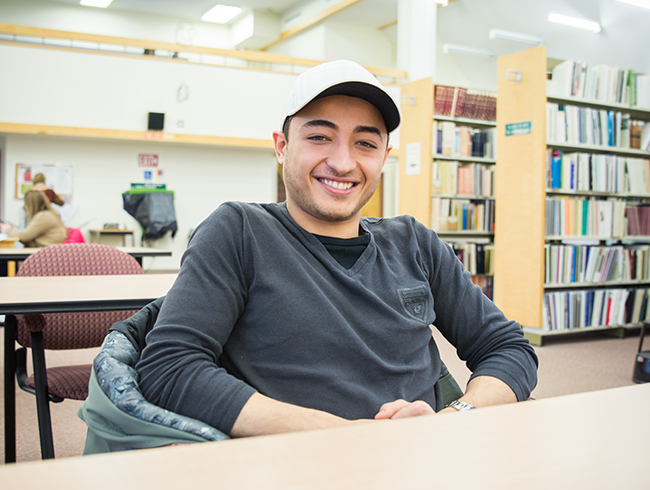
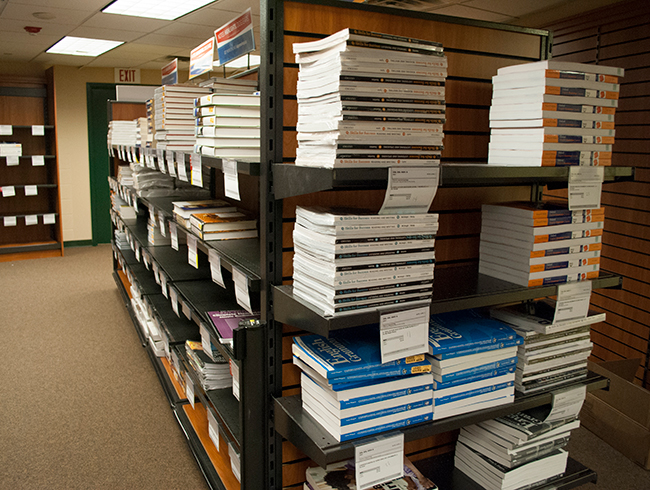
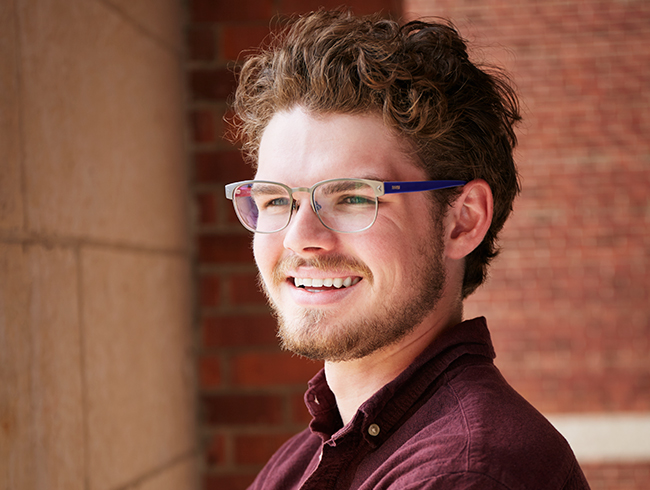
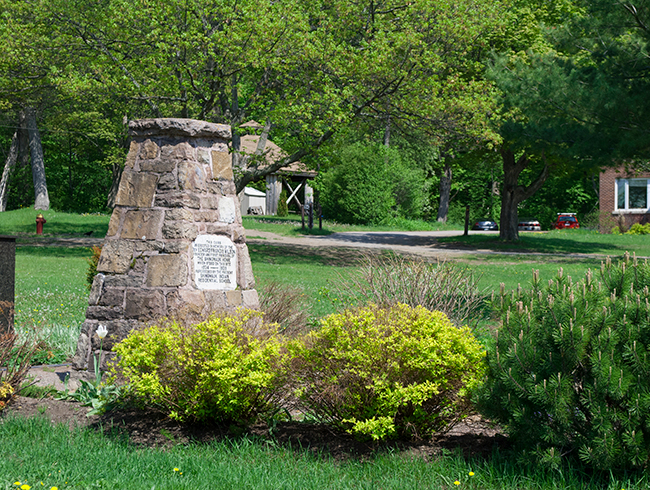
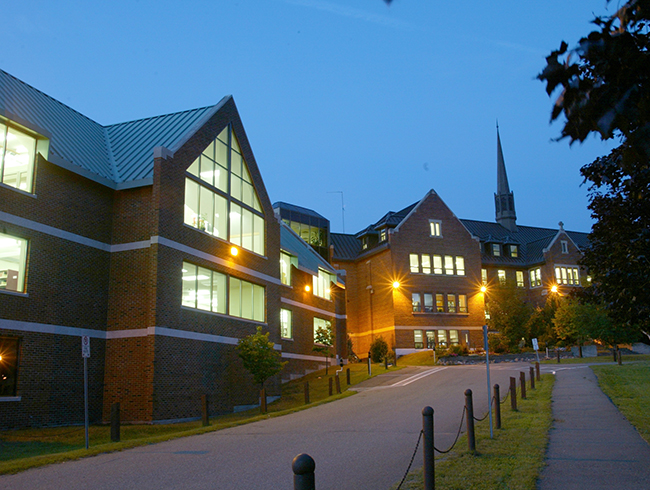
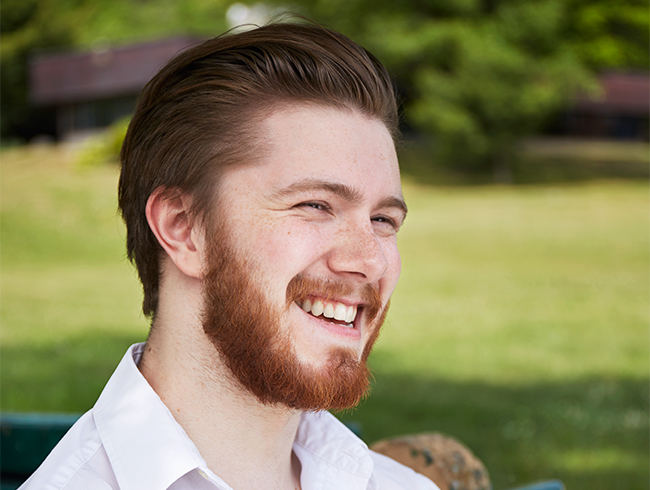

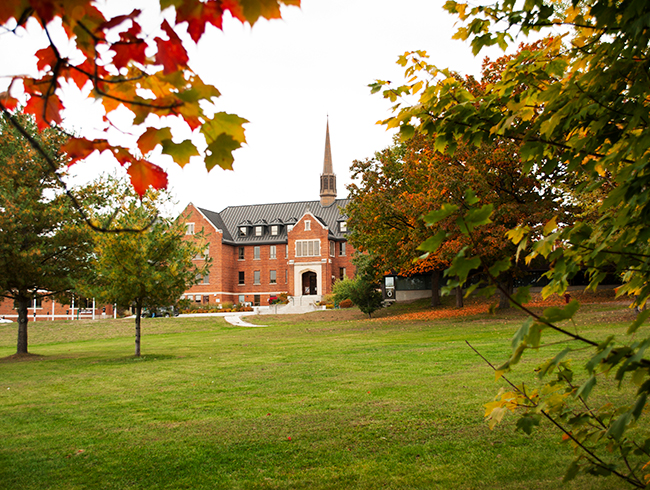
Our Courses
Please visit the Student Portal or the Employee Portal to access the Course Catalogue via “Self-Service“.
For members of the general public who wish to learn more about Algoma University’s academic programs and course offerings, please visit our Academic Calendar webpage.
Experience Maps
Are you ready to apply theory and academic content to real-world experiences? It's time to make your plan!
START NOWMeet our Faculty
Our History faculty are experts in the field. Get to know them!
Dr. Warren Johnston
Professor

[email protected]
705-949-2301, ext. 4334
Dr. Warren Johnston
Professor of History
Educational Background
- PhD, University of Cambridge
- MA, University of Saskatchewan
- BA, University of Saskatchewan
Biographical Background
I was born and raised in Saskatchewan, and from an early age remember having a fascination for history. Growing up, I would spend hours in the local public library scouring the shelves for books that interested me. At that time, my first area of interest was World War II, especially military aviation; I think it was from this topic that my fascination with British history and culture started. I later began to read historical fiction and was drawn to the period of political, social, and religious crisis in the sixteenth and seventeenth centuries. That attraction has remained with me until today.
After completing my undergraduate and initial postgraduate education at the University of Saskatchewan, I enrolled in a PhD programme at the University of Cambridge in England. I completed my doctorate in early modern British history at Cambridge in 2000, and then returned to the University of Saskatchewan where I taught as a sessional lecturer in the History Department for seven years. In 2007, I was offered a permanent position in the Department of History and Philosophy at Algoma University. I quickly discovered the warm, friendly, and encouraging academic atmosphere that exists in the classrooms at Algoma, and I enjoy my teaching here very much.
Areas of Teaching and Research Interest
I am very much interested in the relationship between the prominent ideas in a society and the way they interacted with, and influenced, political, cultural, and social developments. My past research looked at beliefs about the end of the world and the impact they had on later seventeenth-century Britain. My current projects examine the ideas that were being spread from church pulpits in Britain from the mid seventeenth century to the beginning of the nineteenth century, analyzing how these views contributed to the development of British culture, politics, and identity during this period.
I teach a wide range of courses on British, European, and world history. I have recently created and taught courses on the portrayal of historical events and periods on film and television; I have also developed a course on the history of witches and the witch-hunts in early modern Europe. I regularly teach courses on the advance of scientific ideas in Europe, as well as on the political enlightenment that takes place from the early 1500s to the end of the 1700s. I also love teaching first-year surveys on the history of western civilization, where I am fortunate to be able to interact with and learn from students entering into the early years of their university education. I find it particularly rewarding to be able to learn from and encourage students’ interests in history and, hopefully, inspire in them a lifelong pursuit of knowledge and historical curiosity.
Teaching Philosophy
The majority of people enrolled in my courses will not become professional historians. So, while I am committed to teaching history as an important discipline in its own right, I also recognize its value in developing students’ abilities and proficiencies that are trans-disciplinary and can be employed in whatever studies and careers they might choose to undertake. This is best achieved by exposing students to primary sources (documents, writings, artifacts, images, and oral histories from the past, for example), along with more recent historical analyses, which plunge them into a historian’s work at the same time as honing certain fundamental and transferable skills.
I structure classes around the need to develop the tools of critical reading, effective analysis, and strong communication of ideas both orally and in writing. Instead of me simply declaring why certain information is important and how it should be understood, it is essential that students be given the opportunity to apply their own interpretations to events and ideas from history. For me, the study of History is not about the memorization of dates and names: its focus should not just be learning about details of the past, but also understanding why things exist the way they do today. This prompts students to ask “Why?” and “How?”, which are the central questions of all academic inquiry and of human minds. In short, I believe that everyone – teachers, lawyers, social workers, accountants, and scientists, to name only a few – can benefit from studying History.
Algoma University is a wonderful place to implement these approaches in the classroom. All classes are of a manageable size so that not only do I get to know my students’ names, but also learn about them as people in more meaningful and important ways: their extra-curricular activities, their career aspirations, and the academic work that they are doing in other classes as well as mine. This allows me to be a better professor because I am able to concentrate on the individual needs and interests of each student in a way that would not be possible at other universities, where class sizes expand into the hundreds. The quality of student work I see at Algoma is also very good, with many of my students advancing to pursue their careers or further academic studies at a very high level. It is an honour to be able to get to know my students and to see them accomplish their goals and dreams in this way.
Academic Publications and Presentations
In my experience, the best professors I have known are those who have been active and interested in their particular fields of research, and so I remain committed to my academic research as a way to enliven and benefit student engagement in the classroom. Below are a few of my publications and conference presentations from recent years.
Books
National Thanksgivings and Ideas of Britain, 1689-1816 (Boydell & Brewer, 2020
https://boydellandbrewer.com/9781783273584/national-thanksgivings-and-ideas-of-britain-1689-1816/
Revelation Restored: the Apocalypse in Later Seventeenth-Century England (Boydell & Brewer, 2011)
Selected Articles and Book Chapters
“Sermons – A Case Study of Fast Sermons, 1640-1714,” in Nicholas McDowell and Henry Power (eds.), The Oxford Handbook of English Prose, 1640-1714 (forthcoming, Oxford University Press)
“Thanksgiving and the Apocalypse: two eighteenth-century sermons,” in Lionel Laborie and Ariel Hessayon (eds.), Early Modern Prophecies in Transnational, National and Regional Contexts, Volume 3: The British Isles (Brill, 2021), 207-268
https://brill.com/display/book/9789004443631/BP000015.xml
“Thanksgivings and the signs of the times: the Apocalypse in the Long Eighteenth Century,” in Justin Champion, John Coffey, Tim Harris, and John Marshall (eds.), Politics, Religion and Ideas in Seventeenth- and Eighteenth-Century Britain: Essays in Honour of Mark Goldie (Boydell Press, 2019), 239-256
“Eschatology and radicalism after the Restoration: the English context,” in Andrew Crome (ed.), Prophecy and Eschatology in the Trans-Atlantic World, 1500-1800 (Palgrave Macmillan, 2016), 187-211
https://link.springer.com/chapter/10.1057/978-1-137-52055-5_8
“Jane Lead and English Apocalyptic Thought in the Late Seventeenth Century,” in Ariel Hessayon (ed.) Jane Lead and her Transnational Legacy (Palgrave Macmillan, 2016), 119-142
https://link.springer.com/chapter/10.1057/978-1-137-39614-3_6
“Prophecy on the Margins: a Case Study of the Apocalypse in Later Seventeenth-Century England,” in Sarah Harvey and Suzanne Newcombe (eds.), Prophecy in the New Millennium: When Prophecies Persist (Ashgate, 2013), 43-55
http://www.ashgate.com/isbn/9781409449959
“Preaching, National Salvation, Victories, and Thanksgivings: 1689-1800,” in Keith Francis and William Gibson (eds.), The Oxford Handbook of the British Sermon, 1689-1901 (Oxford University Press, 2012), 261-274
http://ukcatalogue.oup.com/product/9780199583591.do
“Radical Revelation? Apocalyptic Ideas in Late Seventeenth-Century England,” in Ariel Hessayon and David Finnegan (eds.),Varieties of Seventeenth- and Early Eighteenth-Century English Radicalism in Context (Ashgate, 2011), 183-204
http://www.ashgate.com/isbn/9780754669050
“Prophecy, Patriarchy, and Violence in the Early Modern Household: the Revelations of Anne Wentworth,” Journal of Family History, 34, #4 (October 2009), 344-368
http://jfh.sagepub.com/content/34/4/344.abstract
“Thomas Beverley and the ‘Late Great Revolution’: English Apocalyptic Expectation in the Late Seventeenth Century,” in Nicholas Keene and Ariel Hessayon (eds.), Scripture and Scholarship in Early Modern England (Ashgate Publishing, 2006), 158-175
http://www.ashgate.com/isbn/9780754638933
“Revelation and the Revolution of 1688-1689,” The Historical Journal, 48 (2005), pp. 351-389
http://dx.doi.org/10.1017/S0018246X05004437
“The Anglican Apocalypse in Restoration England,” Journal of Ecclesiastical History, 55 (2004), pp. 467-501
http://dx.doi.org/10.1017/S0022046904009984
“The patience of the saints, the Apocalypse, and moderate nonconformity in Restoration England,” Canadian Journal of History, 38 (2003), pp. 505-520
http://utpjournalsreview.com/index.php/CJOH/article/view/11396
Selected Conference Presentations
“‘True Patriots’ and the Promotion of ‘Sedition by False News’: The Anatomy of a Conspiracy in the Rye House Plot Sermons of 1683”, Midwest Conference on British Studies, Bowling Green, Ohio, October 2023
“How to Survive the Academic Apocalypse and Even Laugh – The View from Canada”, North American Conference on British Studies, virtual (Zoom), 7 November 2020
“Thanksgiving and the Rage of Party”, Midwest Conference on British Studies, Chicago, September 2019
“‘Promising Tidings of a happy Project … to become one People’: Thanksgivings, Britons, and Others in the Long Eighteenth Century”, Annual Meeting of the Canadian Society of Church History, Regina, Saskatchewan, 1 June 2018
“Anti-Catholicism, infidelity, and ‘French principles’: Britons and France in the long eighteenth century,” Midwest Conference on British Studies, St Louis, September 2017
“Thanksgivings, the Bible, and British Exceptionalism in the Long Eighteenth Century,” Midwest Conference on British Studies, Detroit, September 2015
“‘Are we there yet?’: mapping apocalyptic time and locating the End in England, c. 1660-1760,” Annual Meeting of the American Comparative Literature Association, Toronto, April 2013
“Thanksgivings and ideas of Britishness in the long eighteenth century,” Midwest Conference on British Studies, Terre Haute, Indiana, November 2011
“Commemoration, Crisis, and the Thanksgiving Sermons of the 1680s: 1689,” The Bangor Conference on the Restoration: Politics, Religion & Culture in the 1680s, Bangor University, Wales, July 2009
“Prophecy, Plots, and Exclusion: The Apocalypse and the Politics of Crisis in Later Seventeenth Century England,” North American Conference on British Studies, Cincinnati, Ohio, October 2008
“Patriarchy, the Apocalypse, and the Power of Prophecy in Later Seventeenth-Century England,” History Department Colloquia Series, Laurentian University, Sudbury, Ontario, November 2007
“In the Right Place at the Wrong Time: the Apocalypse in England in the 1690s,” Midwest Conference on British Studies, Dayton, Ohio, September 2007
“Thomas Beverley, Apocalypse, and Reformation: the Case for the Long Seventeenth Century in England,” Faculty Workshop, Classical, Medieval, and Renaissance Studies, University of Saskatchewan, Saskatoon, Saskatchewan, December 2006
“Revelation, radicalism, and the nature of apocalyptic ideas in late seventeenth-century England,” Rediscovering Radicalism in the British Isles and Ireland c.1550-c.1700, Goldsmiths College, University of London, London, England, June 2006
Dr. Bruce Douville
Assistant Professor
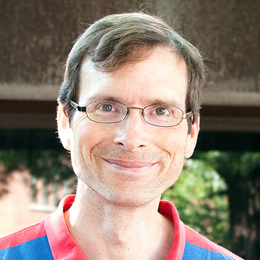
Assistant Professor
705-987-0778
Educational Background
- PhD, York University (Toronto)
- MA, Queen’s University (Kingston)
- BEd, University of Western Ontario
- BMus (Hons), University of Western Ontario
Biographical Background
Sault Ste. Marie is my hometown, but between my late teens and my forties, I lived in other parts of Ontario. In the 1980s and early 1990s, did an undergraduate degree in music history at the University of Western Ontario (in London), followed by a year of teachers’ college (also at Western), and then returned to Sault Ste. Marie, where I worked as a substitute teacher and musician in the 1990s. I also took some courses part-time in history at Algoma University College, which led me to do an MA in colonial-era Canadian history at Queen’s University in Kingston in the late 1990s. From 2000 to 2004, I taught high school History and English full-time in Thornhill (just north of Toronto), before embarking on Round Two of grad school. After completing my doctorate in Canadian history at York University in 2011, I returned once again to Sault Ste. Marie. Over the past decade, I have worked as a part-time faculty member in History here at Algoma University, and also as a musician. Two years ago, I also started working as a substitute teacher in the city’s elementary and secondary schools. Then I began a full-time two-year appointment as assistant professor in January 2023.
In my non-university life, I have enjoyed travelling across North America (mostly by bus or train, because I try to avoid air travel for environmental reasons). I also enjoy reading novels and watching whatever is current on Netflix, playing the piano, spending time in nature, and bicycling.
Areas of Teaching and Research Interest
Since I commenced studies in history in the 1990s, I have focused my attention on movements for progressive social change in Canada and the United States, and the role that Christianity has played in these movements. My MA thesis centered on Christianity and the anti-slavery movement in mid-19th century British North America. My doctoral research (and much of my research since then) centered on the relationship between religion and youth-based movements of political and cultural dissent in Canada, in the late 1960s and early 1970s. More recently, I have branched out to explore aspects of Canadian religious history in the late 1970s and early 1980s.
My teaching interests are an extension of my research interests. I have taught a wide range of courses about North American colonial history, Canada, and the United States. I also teach a seminar entitled “Historical Memory,” in which we explore the role of memory and memory-based sources in the construction of history. This course is a particular favorite, because in my own research, I have made ample use of oral interviews – one of the key varieties of memory-based sources.
Philosophy of Education
The word educate is derived from the Latin word meaning “to draw out.” Thus, education is the process of “drawing out” students: to enlarge the boundaries of their awareness of the world, and to encourage students to think critically about themselves and about the world. Students should become self-directed learners, taking a greater role in enhancing their knowledge and understanding of the world they occupy and the cultural legacies that have been bequeathed to them, and also questioning the values, assumptions and practices of their world and of those cultural legacies.
I firmly believe that the educator must strive to foster critical thinking, as a basis for social engagement. Quality education must empower students, so that they can engage with the structures of society, and when necessary, to challenge and change them. Empowerment starts with awareness, and awareness starts with inquiry. Students begin by asking questions such as: what is wrong? How did we address these challenges in the past? Did our strategies work? And how can we address these problems today? History educators are in a unique position to encourage students to ask these questions. By studying history, students can learn not only “from our mistakes,” but also from inspirational examples (e.g., grassroots social movements for justice). Equipped with such knowledge, students will meet the challenges of the day, and the challenges of the future.
I should add that effective critical thinking is impossible unless it is grounded in an accurate knowledge and understanding of the content. Students must learn that critical thinking is an active process, and that inquiry must lead to rigorous research and analysis. They must learn that knowledge is debatable, but they must also learn that knowledge is necessary for that debate to take place. As an historian, this means that I expect students to engage with primary documents (and to seek to understand their context and meaning), as well as secondary literature.
In addition, I highly value interaction with students, and believe that it is an educator’s duty not only to present the information, but to encourage active student engagement in the learning process. As I have observed in my years in the classroom, this is best achieved when students have the opportunity to discuss course material with their teacher and with each other, and, when feasible, to take part in class presentations. Students learn best when they are given ownership of the collective learning process (i.e., when they have opportunities to teach the material to each other).
Finally, I have found that learning is often most effective when we can help students make connections between the course material and the world they know. By doing so, we can “draw them out,” and help expand their knowledge and understanding of the world. As a history teacher, I enjoy showing students how their personal, familial, or local histories are a part of broader national or trans-national histories. I also challenge them to compare and contrast the events and experiences of the past with present-day events and experiences. Furthermore, I sometimes invite them to choose topics of personal interest (e.g., music, food, ethnic or racial identity), and to explore them historically in research projects.
Academic Publications
Books
The Uncomfortable Pew: Christianity and the New Left in Toronto, 1959-1975. Montreal and
Kingston: McGill-Queen’s University Press, 2021.
Articles and Book Chapters
“CSCH President’s Address 2021 – The Past Ain’t What It Used to Be: Canadian Church
Historians and Contemporary History.” Canadian Society of Church History Historical Papers 2021, pp. 151-167.
Katrina Ackerman, Bruce Douville, and Shannon Stettner, “‘Is Abortion Ever Right?’: The
United Church of Canada and the Debate over Abortion Law Reform, 1960-1980,” in No Place for the State: The Origins and Legacies of the 1969 Omnibus Bill, edited by Christopher Dummitt and Christabelle Sethna (Vancouver: UBC Press, 2020), pp. 52-73.
Shannon Stettner and Bruce Douville, “‘In the image and likeness of God’: Christianity and
Public Opinion on Abortion in the Globe and Mail during the Sixties.” Journal of Canadian Studies 50, no. 1 (Winter 2016), pp. 423-441.
“Project La Macaza: A Study of Two Canadian Peace Protests in the 1960s,” in Worth Fighting For: Canada’s Tradition of War Resistance from 1812 to the War on Terror, edited by Lara Campbell, Michael Dawson and Catherine Gidney (Toronto: Between The Lines Press, 2015), pp. 160-171.
“Christ and Counterculture: Churches, Clergy and Hippies in Toronto’s Yorkville, 1965-70.”
Histoire sociale – Social History 47, no. 95 (November 2014), pp. 747-774.
“A Puppy-Dog Tale: The United Church of Canada and the Youth Counter-Culture, 1965-1973,” Canadian Society of Church History Historical Papers 2008, pp. 27-46.
“‘And We’ve Got To Get Ourselves Back To The Garden’: The Jesus People Movement in
Toronto,” Canadian Society of Church History Historical Papers 2006, pp. 5-24. (Reprinted in Canadian History Modules, a collection of readings for university students, edited by Marcel Martel and Daniel Samson, and published by Cengage Learning Inc./Nelson Education Ltd., 2010.)
Prospective Publications
“And so as a Blasphemer: Monty Python’s Life of Brian and the Last Blasphemous Libel Charges in Canada.” Submitted for peer review, for inclusion in Between Postwar and Present Day, Volume One, eds. Ben Bradley and Nancy Janovicek. Montreal and Kingston: McGill-Queen’s University Press, 2025.
Selected Conference Presentations
“‘And so as a blasphemer’: Monty Python’s Life of Brian and the Last Charges of Blasphemous Libel in Canada”
Meeting of the Canadian Society of Church History, Toronto, ON, May 2023.
“CSCH President’s Address 2021 – The Past Ain’t What It Used to Be: Canadian Church Historians and Contemporary History”
Online meeting of the Canadian Society of Church History, June 2021.
“Always Look on the Bright Side of Anti-blasphemy Laws: Religious Conservative Reaction to ‘Life of Brian’”
Between Postwar and Present Day Conference (online), hosted by the University of Toronto, May 2021.
“‘Is Abortion Ever Right?’ The United Church of Canada and the Debate over Abortion Law Reform, 1960-1980”
(Co-presentation with Katrina Ackerman, as part of a roundtable I organized on the 1969 Omnibus Bill)
Meeting of the Canadian Historical Association, Toronto, ON, May 2017)
“‘Tell Me The Old, Old Story’? Conversion Narratives in the Jesus People Movement of the 1970s”
(As part of panel presentation co-sponsored by Canadian Historical Association)
Meeting of the Canadian Society of Church History, Calgary, AB, May 2016.
“La Macaza: Two Canadian Peace Protests in the 1960s”
(As part of a roundtable I organized on the history of Canadian war resistance)
Meeting of the Canadian Historical Association, St. Catharines, ON, May 2014.
“‘The Son Worshipers’: Toronto’s Jesus People Movement in a Trans-national Context”
Meeting of the Southwest Texas Popular Culture Association, Albuquerque, NM, March 2013.
Dr. Sheila Redmond
Part-Time Contract Faculty
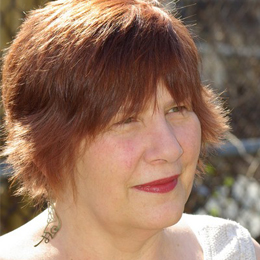
[email protected]
705-949-2301, ext. 4228
Credentials: BA Hons (University of Ottawa), MA (University of Ottawa), PhD (University of Ottawa)
For More Information: Please view my academic website or my personal blog.
Anthony Fabiano
Part Time Contract Faculty
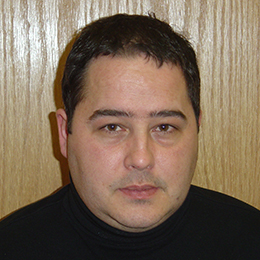
[email protected]
705-949-2301
Credentials: BA Hons (University of Windsor), BEd (University of Windsor), MA (University of Windsor)
Ready to Apply
Applying to Algoma U is simple, fast, and easy
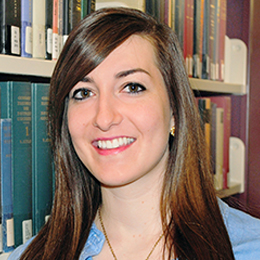
“Having attended both a large and a small university, I can say that Algoma U really is the best undergraduate experience for history students. I was the History Society’s President for two years, and with the club travelled the world. Aside from seeing firsthand what you study in textbooks, I also had the opportunity to be published, since I worked as a research Assistant. This is rare for undergrads.”
Liz Miron
MA, Public History, BA Hons, History
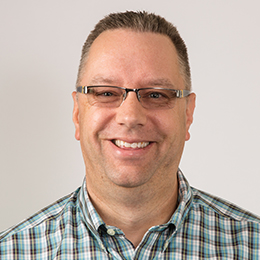
“There is often this idea that History has to be taught as an exercise of memorizing names, dates, and events. I wanted to take this opportunity to assure you that this is not the approach the History program at Algoma follows! We are lucky to have relatively small class sizes that allow discussion to become a central component of the classroom experience”
Dr. Warren Johnston
Associate Professor
"*" indicates required fields
